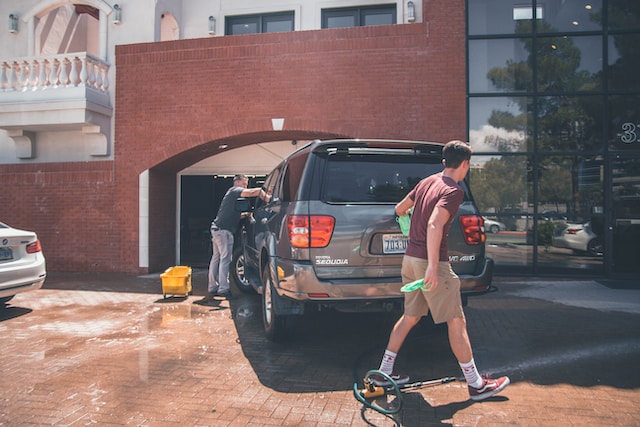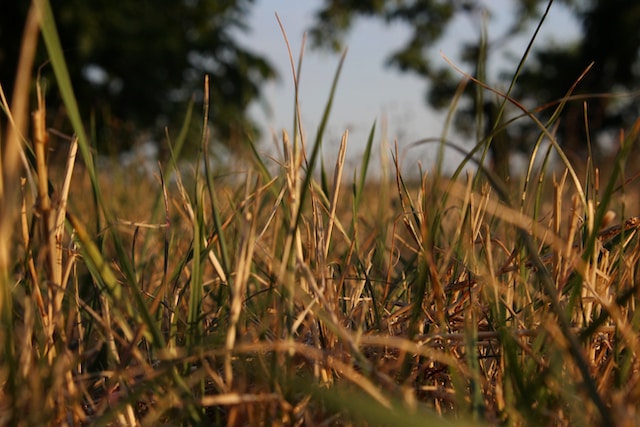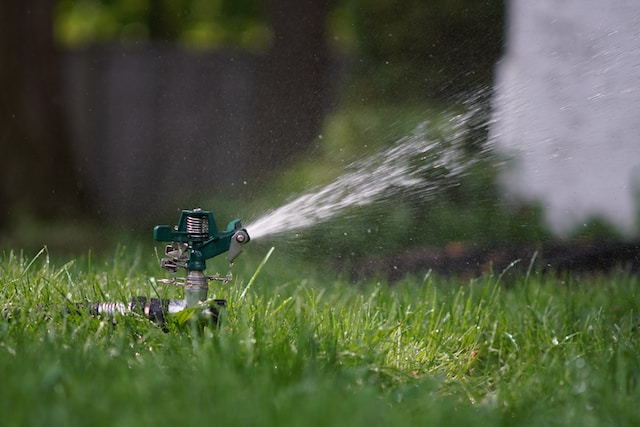Ever heard of a negawatt?
Negatory?
That was a hint.
You’ve, of course, heard of a watt before.
A watt is a unit of power. The old incandescent light bulbs listed their wattage in faint lettering right on the bulb.
A negawatt is a watt of energy that you haven’t used thanks to conservation.
But what’s a negawatt?
A negawatt is a watt of energy that you haven’t used thanks to energy conservation. It can relate directly to the use of energy-efficient products or simply to the deployment of better choices. Negawatts can be sold or traded and they certainly take some pressure off the grid. The term negawatt was coined by Amory Lovins, the chairman and chief scientist of the Rocky Mountain Institute, a research facility devoted to sustainability. He believes that negawatts have immense value in the marketplace and to the planet.
https://unsplash.com/photos/gxsRL8B_ZqE
Hot, dry summers and rising population numbers have put a great deal of pressure on water supplies everywhere. Using this precious resource wisely has become a major concern. But what if you could get credit for all the water you didn’t use? What if your careful husbandry of this critical resource was rewarded? Perhaps there should be a water use equivalent to negawatt?

The City of Vancouver measures water in units. One unit is equal to 2,831.6 litres of water. Every time you run some water – turn on a tap, or flush a toilet – a meter counts the number of turns made by a small reaction turbine moved by the water that flows through it.
In 2012, as part of the Greenest City Action Plan, Vancouver introduced mandatory water meters for new and renovated single family homes and duplex units. The average cost of an annual water bill in Vancouver comes in at about $500 with the rate going up in peak season.

In recent years, cities and municipalities have implemented seasonal watering restrictions. With each passing year those restrictions get tighter. In order to keep the three regional reservoirs – Capilano, Seymour and Coquitlam – above certain levels, the authorities beseech us to limit our water consumption. Washing your car on the street is now illegal in Vancouver. We’re asked to consider washing only the windshield and lights so as to reduce water usage. Lush flower beds of non-native plants like impatiens are discouraged as they require more water than native plants. The proper use of a rain barrel is supposed to divert 29,000,000 litres of run-off water that could be otherwise used in your garden. There are public service notices aplenty reminding us to – duh! – turn off the tap while brushing your teeth. The same goes for shorter showers.

We can reduce our watering schedules and let our lawns go golden at the height of summer. We can collect the scant rain that falls in the summer months. We still seem to get perilously close to critical shortages. Inside our homes, we’re still letting a lot of this valuable resource slip away, underutilized. I measured how long it took to get my kitchen tap to run hot enough to wash dishes. I discovered that I could lose more than two litres of water before
I had something approaching an appropriate temperature. In the course of the day, that water loss could easily exceed ten litres. My simple solution was to get a large, attractive jug which now sits alongside the sink to collect this run-up to temperature water. This water is used for not just the garden but also for cooking. That same water goes into the garden after it’s boiled pasta or potatoes. Water that might have gone down the drain can be used as many as three times. I’ve also put plastic one litre watering cans in the showers. The potted tree at the front door lives entirely on shower water. Virtually no water is wasted. My kids tease me, asking what I do with my bath water. I just glare at them and tell them to eat their soup.
This week’s question for readers:
HOW GOOD ARE YOU AT CONSERVATION? ANY TIPS TO SHARE?
Leave your Comments below!
Register for The Plain Jane newsletter and stay up to date with upcoming contests.
Submissions to last week’s question:
Care to share your own secret for the perfect burgers?
After my wife Helen makes up the burger patties she adds blueberries making sure the berries are covered before grilling. Makes for juicy burgers.
Rod Wright
My favourite burger is a juicy homemade veggie burger which I can eat guilt free knowing I’m not contributing to the climate crisis, world hunger or animal abuse via industrialized farming practices.
Shelley Hrdlitschka
Our hamburgers are pretty legendary and our secret is that we add in lots of grated carrot and zucchini, as well as onion. The trick is to use the finest of the grates on a box grater. You almost don’t see the vegetables when they are mixed in with the ground beef. We add in finely ground dry breadcrumbs, as well. I think the grated vegetables serve the same purpose as the mushrooms in the Cook’s Illustrated recipe.
R. Anderson
The blend matters but any patty will taste terrible if you over cook it. We’re all so afraid of ‘hamburger illness’ that we tend to overcook things on the BBQ. I use a meat thermometer and it has made all the difference, regardless of what I’m cooking.
Bill Wong
We love barbecuing burgers at our house. We think a great hamburger is mostly about the condiments and extras. We save time and use store-bought patties but go crazy with cheeses, peppers, relishes, fried onions, and a variety of mustards. Sometimes I think you could even leave out the patty!
The Levys
